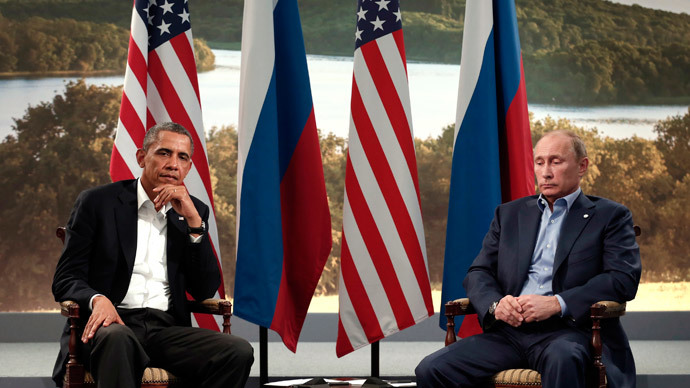‘Washington irritated, can’t accept Ukraine peace deal reached without US’

Americans cannot admit their defeat in Ukraine, so while the German-French alliance pushes for reconciliation, the UK-US team thrusts confrontation, Daniel McAdams, executive director at Ron Paul Institute, told RT.
RT:Jen Psaki has once again accused Russia of stirring up trouble in Ukraine. What is the US dissatisfied with now?
Daniel McAdams: Well it’s funny, Jen Psaki starting to sound like the ‘Baghdad Bob’ of the US government. She is somehow blaming the Russians for all the shelling that took place in east Ukraine, when anyone with a brain knows that it was the government in Kiev that was shelling these places.
So I think what is irritating Psaki and most importantly her bosses in the US government is that the Germans and the Russians took the initiative. They went to Moscow, the went to Kiev. They negotiated an agreement, and they did it without US participation. Der Built newspaper reported on Jen Psaki apparently complaining at the Munich Security Council to the American delegation, making fun of the Germans’ efforts in trying to find peace.
So it is clear that the US can’t simply back down. They can’t turn their back on this operation they’ve launched. They can’t admit that they have done something that has not resulted in what was promised.
RT:In recent days Debaltsevo in eastern Ukraine has seen peace and a withdrawal of heavy weaponry taking place. Why is the US ignoring the success of the ceasefire and continuing to pressure Russia?
DM: Well, this is when you have an agreement that can be interpreted in many different ways. The whole situation in Debaltsevo, the reason why it was not discussed in the context of the February 12 agreement is that Poroshenko did not want to discuss it and refused to admit that there was indeed a cauldron there where some 5,000 or more of his soldiers were trapped. They were left out there, to be killed or trying to escape on their own. The reason why the fighting continued there is directly the result of Poroshenko’s behavior in discussions with the Germans and the French.
RT:Angela Merkel said that new sanctions on Russia have not resolved anything. Is there now a clash of opinions between the US and the EU?
DM: Well I think there is a bigger rift than that. I think it’s the Anglo-American [team] on one side versus the Germano-French on the other. The British defense secretary said recently that he believes that Russia is more dangerous for Europe than ISIS. He said that Russia is poised to attack the Baltics at any moment. And even the most Russophobic Baltic leaders, the defense secretaries of both Latvia and Estonia said “hold on a little, you're pushing this a little bit too far.”
So there is a split. There is the UK and the US on one side who can’t back down from this disaster they’ve created, and there is the French and the Germans, who see it as a possibility of a serious problem in their back yard, trying to find some diplomatic solution to the problem.
RT: Rating agency Moody’s has lowered Russia’s sovereign credit rating to junk status. Could the recent statements coming out of the US be connected to that move?
DM: I think there is no question that all of these rating agencies are very political and very politicized. They are subject to a political pressure. I would not put too much stake in what Moody’s does. We saw the behavior of Moody’s and other organizations like that in 2008 in the US financial crisis. So, I think this is a political move for sure.
The statements, views and opinions expressed in this column are solely those of the author and do not necessarily represent those of RT.
The statements, views and opinions expressed in this column are solely those of the author and do not necessarily represent those of RT.













